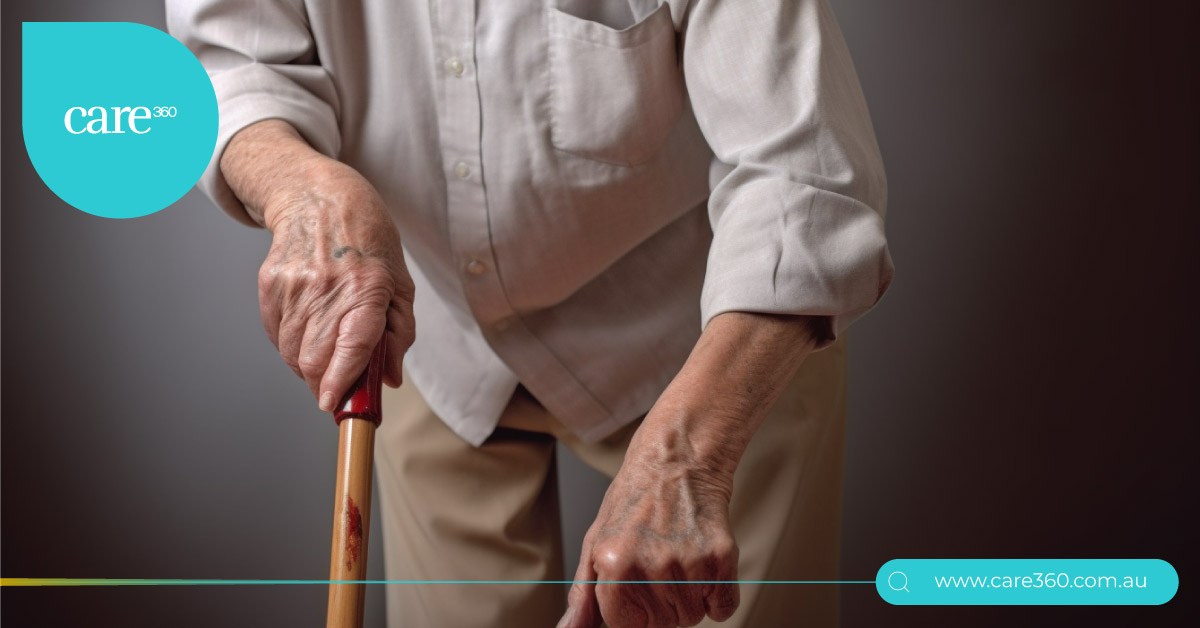
Making the decision to transition your mum, dad or loved one into aged care usually comes with a lot of questions. One of the biggest questions is usually around the cost of aged care which can come as a surprise for those who are making these types of decisions for the first time. Understanding these costs can be complicated and confusing, which is why we’ve created your ultimate guide for understanding aged care costs.
Aged care facilities set their own pricing based on their location, accommodation options and additional services which are reflected in the fees. Some aged care homes have “extra service” status, which means they can provide higher standards of hotel-like services which includes specialised menus or higher quality rooms. There is also the option for additional service fees that can be bundled into a package such as hairdressing, paid TV services and more.
Understanding Aged Care Costs, four types of fees:
- Care fees – which are used to fund the cost of care. This is broken into the basic daily fee and income tested care fee
- Accommodation fees – which are used to fund the cost of the aged care home and includes a refundable deposit and daily accommodation charges
- Service fees – which includes additional services such as upgraded meals, hairdressing, linen etc
- Other fees – such as financial or legal advice
Basic Daily Fee
The basic daily fee pays for your day-to-day services including meals, cleaning, facilities management and laundry. The basic daily price is 85 per cent of the single person rate for the age pension and changes every year on March 20th and September 20th in line with increases to the age pension. Prices can be found on the Department of Health website.
This fee is paid directly to the aged care home either fortnightly or monthly and must be paid for every day, even if the resident is away overnight on holiday or in hospital.
Income-Tested Care Fee
You may be asked to contribute towards the cost of your care if you’re moving into an Australian Government- subsidised aged care home.
The income-tested fee is between $0 and $260 per day. However, there is an annual and lifetime cap on how much an aged care home can charge. The annual cap is $28,088 and the lifetime fee is $67,410. Any income-tested care fees you may have paid for home care before moving into an aged care home is also counted towards the annual and lifetime caps.
This fee is an ongoing and covers the cost of your personal and clinical care. This could include help with dressing, bathing and going to the toilet. While clinical care includes services such as specialised nursing services, medication assistance and catheter care.
To find out your means-tested fee, you will need to download and complete a ‘Calculation of Your Cost of Care Form’. Services Australia or The Department of Veterans’ Affairs will confirm whether or not you need to pay a means-tested care fee and/or accommodation costs. The aged care home that you choose will ask to see the letter, so they know whether or not you’ll receive government assistance or if you’ll pay the full agreed room price.
The assessed income includes the age pension, a service pension or an income support supplement, income from financial investments, income from rental property, income from businesses including farms, superannuation, family trust distributions or dividends from private company shares and more.
All of your assets and investments are also considered.
Accommodation Payment
The accommodation payment is the biggest cost and can be paid as a:
- Refundable upfront lump sum payment known as the Refundable accommodation deposit (RAD)
- Daily amount – known as the Daily Accommodation Charge (DAC)
- A combination of the above
Refundable Accommodation Deposit (RAD)
You don’t need to pay all of your costs upfront. You can choose to pay a refundable lump sum amount, a rental-style daily payment or a combination of both. Should you choose to pay a lump sum, the remaining balance will be returned to you when you leave the home.
Daily Accommodation Payment (DAP)
The DAC is the equivalent daily contribution for accommodation costs in an Australian Government- subsidised aged care home. You make this payment on a regular basis, up to a month in advance, similar to paying rent.
Every aged care home will set its own pricing, which will depend on things such as its location and the size of their rooms. The amount you will pay for your accommodation will depend on whether or not you’re eligible for government assistance.
Government assistance is available for some or all accommodation costs however each resident’s eligibility so determined by means testing, usually with the following guidelines;
- If your income is below $27,840 and your assets are below $50,500, the Australian Government will pay all of your accommodation costs
- If your income is above $70,320 or your assets are above $171,535.20, you will need to pay the full cost of aged care accommodation
- If you need to pay for part of the accommodation, the Australian Government will pay the difference
There are different types of rooms available to residents, including options such as a single or shared room. You are also given options such as having an ensuite or a shared bathroom. These decisions will factor into the cost.
When you choose your aged care home, you will need to agree on a price for the room in writing with the home. Aged care homes are required to share their maximum accommodation costs online; however, you may be able to negotiate a lesser price and they are unable to charge you more than that maximum cost.
Additional Service Fees
Aged care homes offer additional services available for a cost. These include things such as pay-tv, a preferred brand of toiletries, or even arranging a hairdresser. Government subsidies do not cover these fees, so you must agree to pay for them all yourself.
Some homes will have extra service options, which means they provide their residents with a higher standard of hotel-type services, including specialised menus or higher quality linen. These homes may charge a regular extra service fee, giving you access to a bundle of additional services. In this case, however, even if you don’t use the full bundle of extras, you will still be charged.
These fees are not subsidised by the government and must be covered by the resident.
Other costs
It’s highly recommended to seek financial advice before deciding how to pay for your aged care which comes as an additional fee and one that may save you in the long run.
Typically, families considering aged care for their loved one will be faced with many decisions in relation to funding the costs. Will they need to sell a property? Will they need bridging finance in the meantime?
In seventy per cent of cases, families choose to fund the accommodation deposit by selling the family home.
For this reason, it is always advised that you seek professional financial advice when it comes to making these decisions to find what is right for you and your family.
At this time, many families ensure that the right decision-making authorities are in place and may choose to pay for some legal advice to help initiate a Power of Attorney, Guardianship and even updating Wills.
Summary
There are several fees and charges to consider when entering aged care
- Basic Daily Fee – this care fee pays for day-to-day services including meals, cleaning, facilities management and laundry
- Income Tested Fee – this care fee determines whether the Australian Government will contribute to your accommodation costs
- Refundable Accommodation Deposit (RAD) – This accommodation fee can be a refundable lump sum amount, a rental-style daily payment or a combination of both
- Daily Accommodation Charge (DAC) – this fee covers the cost of daily accommodation
- Additional Service fees – these may include hairdressing, upgraded meals, linen, entertainment
- Other costs – such as the engagement of a financial advisor or lawyer to help ensure financial affairs are best managed
Care360 is the only independent service that allows you to find the right aged care home quickly and easily. Should you require more help on navigating the transition into aged care, you can contact the Care360 Navigation Team, who will provide more information and offer a range of services designed to help families and their loved ones with this change.
We have made it our mission to provide independent, reliable and trustworthy information so you can transition your loved one to aged care with the confidence you’re making an informed decision.
Find out more about finding the right aged care home for your loved one here.






